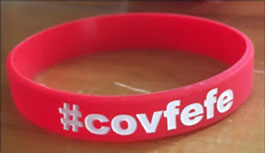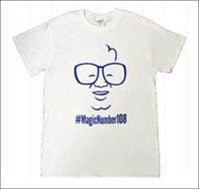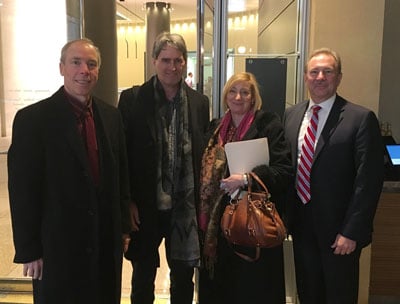Can and Should You Register Hashtags as Trademarks?
Patent Owners Can Recover Foreign Lost Profits
IP Client Spotlight
Can and Should You Register Hashtags as Trademarks?
By Kevin Casey
Hashtags are ubiquitous and appear on storefronts, in advertisements and on packaging. In the social media context, a hashtag is a word or phrase preceded by a hash mark (#), used within a message posted on sites such as Twitter and Instagram to identify a keyword or topic of interest and facilitate a search for the message. Hashtags function to identify the subject of a message rather than the source of the message. Trending terms are now routinely followed by applications filed with the U.S. Patent and Trademark Office by opportunistic applicants who want to gain exclusive rights to a popular term. The PTO almost always rejects such applications, however, because the designation #Designation fails to function as a mark. Two recent examples illustrate the PTO’s analysis.
In In re Gillard, Serial No. 87469115 (TTAB Jan. 11, 2019) (not precedential), the Trademark Trial and Appeal Board refused to register the designation #covfefe for hats, T-shirts, wristbands, hoodies, jackets, jerseys, ties and tops.

The designation is a hashtag version of the bizarre term used by President Donald Trump in a May 31, 2017, tweet: “Despite the constant negative press covfefe.” The tweet went viral and prompted much discussion. The applicant, John E. Gillard, filed his application to register the designation on the same day as the tweet.
The Board’s ruling was based on a finding that consumers will associate the designation with Trump and the subsequent “whirlwind” of media publicity rather than a particular source of goods or services. In other words, the designation does not perform the source-identifying function required of a trademark. “The critical inquiry in determining whether a designation functions as a mark is how the designation would be perceived by the relevant public.”
TMEP (Trademark Manual of Examining Procedure) Section 1202 lists 15 grounds for refusal under the rubric “failure to function.” In this case, the examining attorney invoked the “informational matter” ground, maintaining that #covfefe is “a social, political, or similarly informational message that is understood and commonly used as a reference to President Trump, typically expressing either support or disapproval of the President.” Moreover, he asserted, consumers are accustomed to seeing the designation (both covfefe and #covfefe) used by many different sources on a variety of goods and services, mostly in an ornamental manner.
The Board deemed the designation to be “in the nature of a verbal Rorschach test, in which users and observers of the word can project onto it any meaning they wish, and, as a result, it has been used ubiquitously” in several non-trademark senses. The Board further explained, “The more commonly a phrase is used, the less likely that the public will use it to identify only one source and the less likely that it will be recognized by purchasers as a trademark.” The use of the hashtag symbol with covfefe is “particularly probative” because hashtags “are commonly employed to facilitate categorization and searching of topics of public discussion.” Based on its analysis, the Board affirmed the refusal under Sections 1, 2, 3 and 45 of the Lanham Act.
The Board issued a similar ruling in In re DePorter, Serial No. 87229711 (TTAB Jan. 29, 2019). The Board affirmed a refusal to let a Chicago Cubs fan register the hashtag #MAGICNUMBER108 as a trademark for shirts. See Harry Caray’s image on the applicant’s specimen T-shirt:

In a precedential decision under Sections 1, 2 and 45 of the Lanham Act, the Board held that the designation is merely a term widely used on social media linked to the baseball team winning the World Series in 2016 rather than as an identification of source for the goods identified in the application. The Board ruled that even if Grant DePorter, the applicant and perhaps the world’s leading expert in Cubs numerology, was the first to use the hashtag – as he claimed to be – and the term were arbitrary or fanciful in a trademark sense, such facts would not give him exclusive rights to a phrase that was later used by countless others to celebrate the end of a 108-year World Series drought. “Due to the widespread use of #MAGICNUMBER108 to express affiliation for the Chicago Cubs baseball team and their pursuit of a 2016 World Series win 108 years after their last one, applicant’s proposed mark would not be perceived as identifying a particular source of goods,” the Board stated. “That applicant may have been the first to use the phrase and/or hashtag does not change the fact that the evidence shows widespread use . . . to informationally convey reference to the Chicago Cubs’ World Series appearance,” the Board continued. The ruling carefully avoided sweeping statements about the registrability of hashtags, but the Board cautioned that the mere addition of a hash mark to a word is “usually devoid of source-identifying significance.” “We do not hold that hashtags can never be registered as trademarks,” the Board stated. “To be registrable, a hashtag – like any other matter – must function as a trademark.” The Board observed that a hashtag, when used as part of an online social media search term, generally serves no source-identifying function. It “merely facilitate[s] categorization and searching within online social media.” TMEP Section 1202.18. “Therefore, the addition of the term HASHTAG or the hash symbol (#) to an otherwise unregistrable term typically will not render the resulting composite term registrable.”
Query whether people beyond the North Side of Chicago know (or care) what the designation refers to? If the designation is informational to only the small percentage of Americans who are Cub fans, is that enough to invoke the failure-to-function bar? Compare the prior, now discredited, doctrine of niche market fame.
The PTO recognizes that hashtags can serve sometimes to identify the source of goods or services. Consider a product hangtag with the designation #CalvinKlein; such use would convey to consumers the source of the product. Therefore, the PTO has issued registrations for hashtags such as #EverydayMadewell, U.S. Reg. No. 4,895,377, and #SayItWithPepsi, U.S. Reg. No. 5,037,848.
Given the difficulty but possibility of registering hashtags as marks, the question is whether an application to register is worthwhile. The answer is, of course, it depends on the nature of the hashtag. If the hashtag is in the form of #RegisteredTrademark (i.e., the hashtag incorporates an existing registered trademark), then there is likely no need to register the hashtag. If a third party were to start using #RegisteredTrademark and the trademark owner only had a registration for their mark (without the hash symbol), it seems likely that the trademark owner could prevail over the user of #RegisteredTrademark. Therefore, registration of the hashtag would not be necessary.
When services are rendered through social media, however, it might be necessary to register a hashtag as a trademark. For example, if an applicant offered customer support by telling users to label their messages with the hashtag #TrademarkService or #TrademarkHelp, and then the applicant’s customer support personnel responded to those messages, it might be possible to register the hashtag for use in connection with online customer support. A registration might cover goods or services not covered by other registrations and could aid in enforcement efforts.
A registration for a hashtag might also be necessary if an applicant seeks to enforce its rights online. Many websites have their own trademark enforcement policies, and although they may be willing to take action when a trademark owner has a registration for its mark (without a hash symbol) and a user is using #RegisteredTrademark in an infringing manner, a website might be more inclined to act when the trademark owner has a registration corresponding to the hashtag. This is especially true when addressing websites located outside the United States.
Takeaway: Including the hashtag symbol often hurts rather than helps a designation achieve trademark status. In most situations, there is no need to register hashtags as trademarks anyway, particularly where the hashtag is #RegisteredTrademark and a client has already registered its trademark.
Patent Owners Can Recover Foreign Lost Profits
By Kevin Casey
In WesternGeco LLC v. ION Geophysical Corp., 579 U.S. __, 138 S. Ct. 2129, 127 U.S.P.Q.2d 1001 (2018) (7-2 opinion by Justice Thomas), the U.S. Supreme Court held that patent owners can recover foreign lost profits under certain circumstances. WesternGeco owns patents directed to marine seismic surveys for discovering oil and gas deposits beneath the ocean floor. Both WesternGeco and its competitor, ION, manufacture devices for steering streamers (surface cables) in marine seismic surveys. WesternGeco does not sell its device, but uses it to perform surveys abroad; ION does not perform surveys, but makes components for its competing surveying system in the United States. ION ships the components to companies abroad, where the components are combined to create a surveying system indistinguishable from WesternGeco’s patented systems. Those companies then use the ION systems to perform surveys abroad.
At trial before the district court, ION was found to have infringed the asserted patent claims under 35 U.S.C. §§ 271(f)(1) and (2), and WesternGeco was awarded a reasonable royalty of $12.5 million and lost profits of $93.4 million. The lost profits damages were based on the loss of 10 surveys abroad, which WesternGeco argued it would have won but for ION’s sales to WesternGeco’s competitors. On appeal, the U.S. Court of Appeals for the Federal Circuit (a) addressed infringement under Section 271(f)(2) but did not address whether ION was liable under Section 271(f)(1); and (b) reversed the lost profits award as being based on an unauthorized extraterritorial application of the patent law.
The U.S. Supreme Court reversed and remanded the Federal Circuit’s decision. The focus of the Patent Act’s general damages provision, 35 U.S.C. § 284, in a case involving infringement under Section 271(f)(2) is on the act of exporting components from the United States; therefore, WesternGeco’s award for lost profits was a permissible domestic application of Section 284, not an impermissible extraterritorial one. Section 271(f)(2) encompasses as patent infringement the supplying of a patented invention’s components from within the United States for assembly abroad. There are caveats in Section 271(f)(2), such as the component must not be a “staple article or commodity of commerce suitable for substantial noninfringing use.” Further, the supplier must know that the component supplied from within the United States “will be combined outside the United States in a manner that would infringe the patent if such combination occurred within the United States.” Further still, there must be intent.
What are the practical ramifications of this decision? The decision is clearly a win for patent owners and helps ensure that they receive adequate compensation for damages caused by U.S. patent infringement regardless of where the damages accrue. The Court reversed the Federal Circuit’s categorical rule against extraterritorial damages – meaning patent owners and accused infringers should look beyond U.S. borders in evaluating damages for U.S. infringement. The Court made considerable efforts, however, to limit its ruling, including focusing specifically on Section 271(f)(2), reserving decision on proximate cause and prioritizing its reasoning to avoid addressing the plaintiff’s broader contention that the presumption against extraterritoriality should never apply to a general damages provision such as 35 U.S.C. § 284. Footnote 3 of the opinion invites litigants to look to other doctrines, such as proximate cause, to limit or preclude damages in particular cases. In the future, defendants will need to focus on these doctrines instead of relying on a blanket prohibition on foreign damages.
What about an infringement claim under Section 271(a) that occurs in the United States but gives rise to foreign damage? Numerous examples might be conjured in the internet context, for example where a domestic patented method, directly infringed in this country under Section 271(a), gives rise to a “signal” (e.g., stream) and not a “component,” that is ultimately consumed and paid for outside the United States. Although President Trump has been focused on bringing manufacturing back to America, U.S. companies that do business globally now have an additional motivation to move the entirety of their manufacturing offshore. Justice Gorsuch raises in his dissent a concern that foreign courts may similarly hold a U.S. company liable for infringing a foreign patent in a foreign country.
IP Client Spotlight
Stradley Ronon represents The Avataric Samrajya of Adidam Pty Ltd. as Trustee for The Avataric Samrajya of Adidam, an Australian proprietary limited company, in its intellectual property matters. By way of background, in 1972, Avatar Adi Da established Adidam, a way of life founded on Adi Da’s teachings, and the organization has devotees worldwide. Stradley Ronon has advised The Avataric Samrajya of Adidam in its U.S. and foreign trademark matters, in particular its registration of the ADIDAM mark in the United States for its educational services. We also advise The Avataric Samrajya of Adidam in its licensing of the vast catalog of writings and artwork of Avatar Adi Da. Our relationship is facilitated by meetings, including a visit from Michiel Vos, the client’s principal administrator located in Fiji, as depicted in the photograph below. Stradley Ronon is proud to assist The Avataric Samrajya of Adidam in its efforts to navigate complex IP issues faced by a growing and expanding organization, along with a variety of non-IP work, including the creation of new corporate entities through which the religious authorities can guide the work of the religion in the United States.

From left: Kevin Casey (IP Group Chair, Stradley Ronon); Michiel Vos (Principal Administrator of the Client);
Allison Gifford (IP Counsel, Stradley Ronon); and Mark Chopko (Litigation Partner, Stradley Ronon).
Information contained in this publication should not be construed as legal advice or opinion or as a substitute for the advice of counsel. The articles by these authors may have first appeared in other publications. The content provided is for educational and informational purposes for the use of clients and others who may be interested in the subject matter. We recommend that readers seek specific advice from counsel about particular matters of interest.
Copyright © 2019 Stradley Ronon Stevens & Young, LLP. All rights reserved.